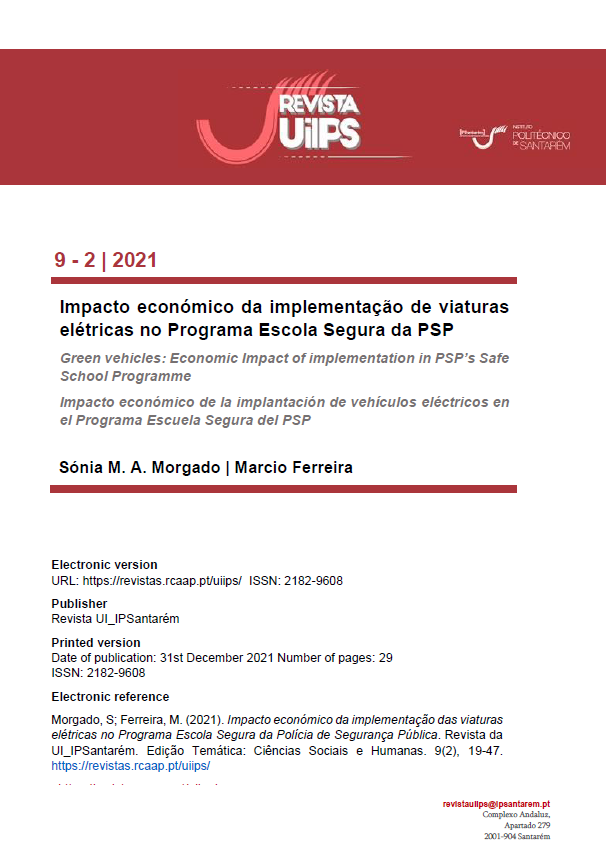Green vehicles: Economic Impact of the implementation in National Public Police Programme of Safe School
DOI:
https://doi.org/10.25746/ruiips.v9.i2.26408Keywords:
Economic viability, green mobility, police, value creation, electric vehiclesAbstract
The option for electric vehicles is the appanage of an ecologically aware society that seeks technological solutions for the replacement of internal combustion engines by vehicles powered by electric energy. The State institutions, namely the PSP, must also be aware of this process. The article examines the economic feasibility of introducing electric vehicles in the Safe School Programme of the Public Security Police, with the definition of the cost and cash-flows of electric vehicles compared to internal combustion engines. This analysis shows that the electric vehicle is not economically advantageous, even if its adoption contributes to value creation because of the environment and the interaction with consumer economic agents. The future presents itself with the indispensability of the use of alternative forms of ecological mobility, whereby the ongoing technological development shall render this analysis obsolete, with the exponential growth of the positive externalities of such mobility.

Downloads
Published
How to Cite
Issue
Section
License

This work is licensed under a Creative Commons Attribution-NonCommercial-NoDerivatives 4.0 International License.
Authors publishing in this journal agree to the following terms:
Authors retain copyright and grant the journal the right of first publication, with the article simultaneously licensed under the Creative Commons Attribution License that allows sharing of the work with acknowledgement of authorship and initial publication in this journal.
Authors are permitted to enter into additional contracts separately for non-exclusive distribution of the version of the article published in this journal (e.g., publish in an institutional repository or as a book chapter), with acknowledgment of authorship and initial publication in this journal.
Authors have permission and are encouraged to publish and distribute their work online (e.g., in institutional repositories or on their personal webpage) at any point before or during the editorial process, as this may generate productive changes, as well as increase the impact and citation of the published work.




